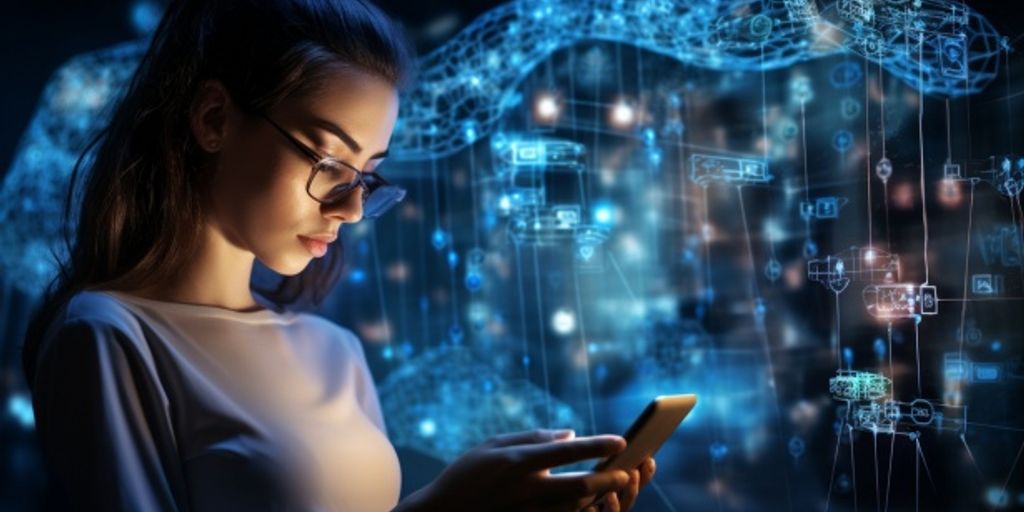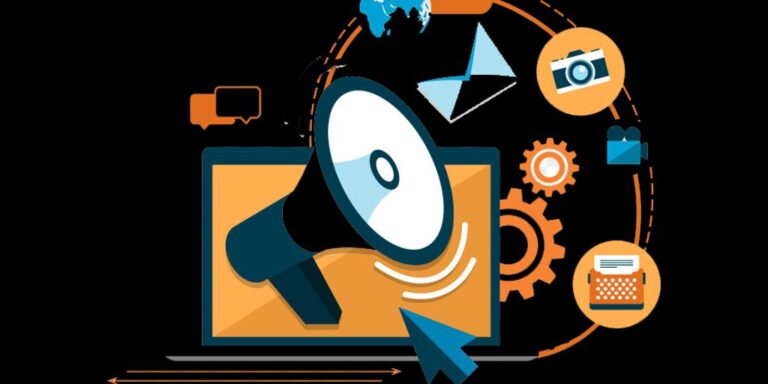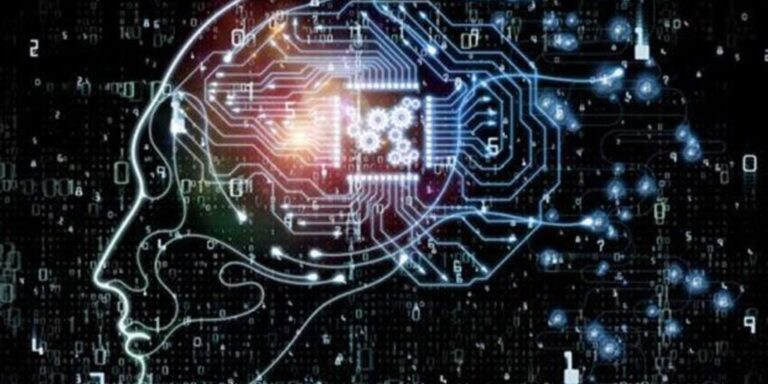The digital art world has seen a significant rise in AI nude generators, which have sparked intense debate over art, ethics, and privacy. These tools, capable of producing hyper-realistic fake nude images using advanced deep learning techniques, have raised concerns about consent, privacy, and the potential for misuse. This article delves into the ethical dilemmas, legal challenges, and societal impacts of AI-generated naked women, exploring how they reshape our understanding of digital ethics and privacy in the age of artificial intelligence.
Key Takeaways
- AI-generated naked women highlight the dual-edged nature of technological advancements, offering both innovative potential and ethical challenges.
- The rise of these technologies has prompted a reevaluation of digital ethics, privacy laws, and the role of AI in society.
- Consent, privacy, and the potential for misuse are central concerns, with calls for stringent regulatory measures and ethical guidelines.
- The public and critical reception to these technologies has been overwhelmingly negative, emphasizing the need for responsible development and use.
- The ongoing debate balances the innovation in digital art and entertainment with the imperative to protect individual dignity and privacy.
The Rise of AI-Generated Naked Women

Technological Advances
The term “deep nude” entered the public lexicon more prominently around 2019 when an app designed to create such images gained notoriety. This technological leap has enabled the creation of hyper-realistic fake nude images, igniting discussions on art boundaries, ethics, and privacy.
Public Reaction
The release of apps like DeepNude sparked immediate public outrage and ethical debates. The unsettling surge in AI-driven undressing technologies predominantly targets women, raising significant concerns about consent and privacy.
Regulatory Responses
Governments and regulatory bodies are beginning to respond to the challenges posed by AI nude generators. Proposed changes and discussions are underway to address the legal and ethical implications of these technologies.
Ethical Concerns Surrounding AI Nude Generators

Consent and Privacy Issues
The rapid advancement of AI nude generators has raised significant consent and privacy issues. These tools can create realistic nude images from clothed photos, often without the subject’s knowledge or consent. This invasion of privacy is a critical concern, as it can lead to personal and professional harm.
Potential for Misuse
AI-generated nudes present a substantial risk for misuse. They can be used to harass, blackmail, or publicly shame individuals. The ease of creating these images makes it a potent tool for cyberbullying and online harassment, highlighting the urgent need for regulatory measures to curb such practices.
Impact on Society
The societal impact of AI-generated nudes is profound. They challenge the ethical boundaries of technology and art, influencing public perception and trust in AI technologies. This technology also raises questions about the normalization of objectifying images and its effect on societal norms and gender relations.
Legal Frameworks and AI-Generated Nudity

Current Laws
The legal landscape for AI-generated nudity varies significantly across different jurisdictions. Most countries lack specific legislation addressing the creation and distribution of AI-generated nude images, often relying on broader privacy and obscenity laws to manage these cases. This legal ambiguity poses challenges for both enforcement and compliance.
Proposed Changes
In response to the growing concerns about AI-generated nudity, several countries are considering legislative amendments. These proposed changes aim to specifically address the issues of consent and privacy that are central to the use of AI nudifiers. Key proposals include criminalizing the non-consensual creation and distribution of AI-generated nude images.
Global Perspectives
Different countries have adopted varied approaches to regulating AI-generated nudity. For instance, the European Union emphasizes data protection and privacy, while the United States focuses on freedom of expression and its limitations. This global patchwork of regulations highlights the need for international cooperation and standardized norms to effectively manage the ethical and legal challenges posed by AI nudifiers.
The Role of AI in Art and Entertainment

Innovation vs. Ethics
The integration of AI in art and entertainment sectors has sparked a significant transformation, offering new possibilities for creativity and expression. AI algorithms play a significant role in generating and shaping the final artwork, allowing for the exploration of historical reconstructions and alternative realities. However, this innovation raises ethical questions about the authenticity and integrity of art.
Cultural Impact
AI’s influence extends deeply into cultural realms, reshaping how narratives are constructed and experienced. In entertainment, AI has been used to de-age actors or resurrect performances, altering not just the visual but also the cultural landscape. This technology challenges traditional boundaries and prompts a reevaluation of what constitutes genuine artistic and cultural expression.
Future Trends
Looking ahead, the trajectory of AI in art and entertainment is poised for exponential growth. As technology evolves, so too will its applications, potentially revolutionizing how we interact with and consume art. The future may see even more sophisticated integrations of AI, pushing the boundaries of what is possible in digital and interactive art forms.
Combatting Misuse of AI in Creating Non-Consensual Images

Technological Solutions
To address the creation of non-consensual images, technological advancements such as digital watermarks and AI detection tools are essential. These technologies can help trace the origin of images and verify their authenticity, thus preventing misuse.
Policy Interventions
Legislative measures are crucial in combating the misuse of AI in creating non-consensual images. Laws need to be updated to cover the nuances of AI-generated content, ensuring victims have legal recourse and perpetrators are held accountable.
Community Actions
A societal commitment to ethical use of AI is vital. Public awareness campaigns and educational programs can help foster a culture of respect and consent in the digital realm. Community-driven initiatives can also play a role in monitoring and reporting abuses, supporting victims, and advocating for change.
The Psychological Impact of AI-Generated Naked Images

Individual Well-being
The introduction of platforms like Nudify.Online has raised significant concerns about the psychological effects on individuals whose images are manipulated without consent. The distress and violation felt by victims can lead to long-term psychological issues, including anxiety, depression, and a diminished sense of personal autonomy.
Societal Norms
AI-generated naked images challenge and often distort societal norms about privacy and body image. The widespread availability of such technology can desensitize the public to the seriousness of creating and distributing non-consensual images, potentially normalizing harmful behaviors and attitudes towards privacy and consent.
Long-term Effects
The long-term effects of exposure to AI-generated naked images are still being studied, but preliminary data suggests a correlation with increased sexual objectification and skewed perceptions of body image. Efforts to understand and mitigate these effects are crucial as the technology becomes more integrated into daily life.
The Intersection of AI and Gender-Based Violence

Online Harassment
The proliferation of AI technologies has led to an increase in online harassment, particularly through the creation of non-consensual images. Nudification AI raises ethical concerns with privacy and consent issues, directly impacting victims predominantly women. This form of harassment can have severe psychological effects and contributes to a hostile online environment.
Legal Recourse
Victims of AI-generated gender-based violence often find themselves in a complex legal landscape. Current laws may not adequately cover the nuances of AI-generated content, making it difficult for victims to seek justice. Advocates are pushing for clearer regulations that specifically address the challenges posed by AI in this context.
Preventative Measures
To combat AI-driven gender-based violence, several preventative measures can be implemented:
- Education on digital rights and responsibilities
- Development of AI systems that can detect and mitigate harmful content
- Stronger community guidelines and enforcement by platforms
It’s crucial to balance technological innovation with ethical considerations to ensure the safety and dignity of all individuals.
The Future of AI in Digital Art and Privacy

Balancing Creativity with Responsibility
The integration of AI in digital art presents a unique blend of limitless creative possibilities and ethical challenges. As AI technologies like deepfake evolve, they not only democratize photo editing but also raise concerns about their potential misuse. It’s crucial to balance innovation with ethical responsibility to harness AI’s benefits while mitigating risks.
Privacy Concerns
AI-generated nude imagery, exemplified by platforms like Pornderful.ai, prioritizes user privacy and security. However, the creation of realistic fake intimate imagery without consent highlights significant privacy and abuse concerns. Measures such as digital watermarks and enhanced legal protections are essential to safeguard individuals against privacy violations.
Technological Boundaries
The rapid advancement of AI technologies challenges existing digital ethics and privacy laws. This necessitates a reevaluation of legal and ethical frameworks to ensure they keep pace with technological developments. Responsible oversight and continued AI innovation are vital to prevent the erosion of trust and to maintain societal norms in the digital realm.
AI and the Reevaluation of Digital Ethics

Ethical Guidelines
The rapid development of AI technologies, including those that generate nude images, necessitates a robust framework of ethical guidelines. These guidelines should address the balance between innovation and the potential harm these technologies can cause. It is crucial to establish clear norms that prioritize human dignity and privacy.
Role of AI Developers
AI developers play a pivotal role in shaping the ethical landscape of digital technologies. They must integrate ethical considerations into their development processes, ensuring that AI tools enhance societal values without compromising them. This responsibility is not just about compliance but about fostering a culture of ethical innovation.
Public Accountability
The public’s role in holding AI developments accountable is undeniable. Increased transparency in AI operations and decisions can lead to more informed discussions and decisions about AI’s role in society. Engaging the public in these conversations ensures that AI development aligns with societal norms and expectations.
The Debate Over AI-Generated Content and Freedom of Expression

Artistic Freedom
The ability to create freely using AI tools has sparked a significant debate about the boundaries of artistic freedom. As AI technology advances, artists and developers are exploring new realms of creativity, often blurring the lines between ethical use and artistic expression. This freedom, however, must be balanced with the responsibility to respect individual rights and avoid harm.
Censorship Concerns
Concerns about censorship arise as platforms and governments attempt to regulate AI-generated content. The challenge lies in creating policies that protect users without stifling innovation or freedom of expression. Effective regulation should aim to prevent harm while supporting the free flow of ideas and artistic expression.
Balancing Rights
The task of balancing the rights of content creators with the rights of those depicted in AI-generated images is complex. Policies need to be crafted that both respect freedom of expression and prevent the misuse of technology to harm others. This balance is crucial to ensure that the benefits of AI in art and expression can be enjoyed without infringing on individual privacy and dignity.
The Impact of AI on the Adult Entertainment Industry

Economic Implications
The integration of AI into the adult entertainment industry has led to significant economic shifts. AI-driven platforms like OnlyFans have enabled creators to generate personalized content, leading to increased revenue streams and a more engaged audience. The industry’s adaptation to AI technologies has not only boosted profitability but also transformed traditional business models.
Shifts in Consumer Behavior
AI has profoundly influenced consumer behavior within the adult entertainment sector. Enhanced personalization and interactivity have made AI-generated content highly appealing. Consumers now expect more tailored experiences, which has driven the demand for advanced AI features in adult apps and platforms.
Regulatory Challenges
The rapid adoption of AI in adult entertainment poses several regulatory challenges. Issues such as non-consensual content and privacy violations are at the forefront. Policymakers are struggling to keep up with the pace of technological advancements, making it crucial to establish robust legal frameworks to protect both creators and consumers.
Public and Critical Reception of AI Nude Technologies

Media Coverage
The initial reception to deep nude technology was overwhelmingly negative, with public and critics alike condemning it for its potential to harm and degrade individuals, especially women. The ease with which it allowed for the creation and dissemination of non-consensual imagery raised urgent calls for regulatory measures and ethical guidelines.
Critic Perspectives
Despite its controversial status, the emergence of deep nude technology has forced a reevaluation of digital ethics, privacy laws, and the role of AI in society. It serves as a stark reminder of the potential for technology to be used in ways that can deeply affect individuals’ lives and societal norms.
User Feedback
In wrapping up, AI nude generators, as showcased by the likes of Pornderful.ai and others, are not just tools; they’re harbingers of a future where AI’s role in art, entertainment, and social interactions will be pivotal. As we embrace this future, it’s imperative to approach it with a blend of excitement, caution, and responsibility.
Conclusion
The exploration of AI-generated naked imagery brings to light the profound ethical and societal dilemmas inherent in the intersection of technology and personal privacy. As AI continues to evolve, the potential for misuse, particularly in the creation of non-consensual nude images, poses significant challenges. This article has underscored the urgent need for robust legal and ethical frameworks to govern the use of such technologies. It is crucial for society to balance the innovative potential of AI with stringent measures to protect individual dignity and prevent exploitation. The dialogue around AI-generated nudes is not just about technological capability but fundamentally about human values and rights in the digital age.
Frequently Asked Questions
What are AI-generated naked women?
AI-generated naked women refer to hyper-realistic images created by artificial intelligence programs that can digitally undress individuals in photos, often without consent.
What are the main ethical concerns with AI nude generators?
The primary concerns include issues of consent, privacy, the potential for misuse, and the impact these images may have on individuals’ dignity and respect.
How have the public and critics reacted to AI-generated nudity?
The initial reaction has been overwhelmingly negative, with concerns about harm, degradation, and the non-consensual nature of the imagery prompting calls for regulatory measures and ethical guidelines.
What are some potential legal implications of AI-generated naked images?
Legal implications include violations of privacy laws, potential copyright issues, and the need for new regulations to address the unique challenges posed by AI-generated content.
How can misuse of AI in creating non-consensual images be combated?
Misuse can be combated through technological solutions like watermarking, policy interventions including stricter laws, and community actions to raise awareness and establish ethical guidelines.
What role does AI play in art and entertainment regarding nudity?
AI has the potential to innovate in the fields of art and entertainment, but its use in creating nude images raises significant ethical debates about the boundaries of art and the protection of individuals’ rights.
What are the psychological impacts of AI-generated naked images?
These images can affect individual well-being by promoting unrealistic body images, affecting self-esteem, and potentially leading to emotional distress. They also impact societal norms regarding privacy and consent.
How is the adult entertainment industry affected by AI-generated nudity?
AI-generated nudity could shift consumer behavior, introduce new economic dynamics, and pose regulatory challenges as the industry adapts to these new technologies.









